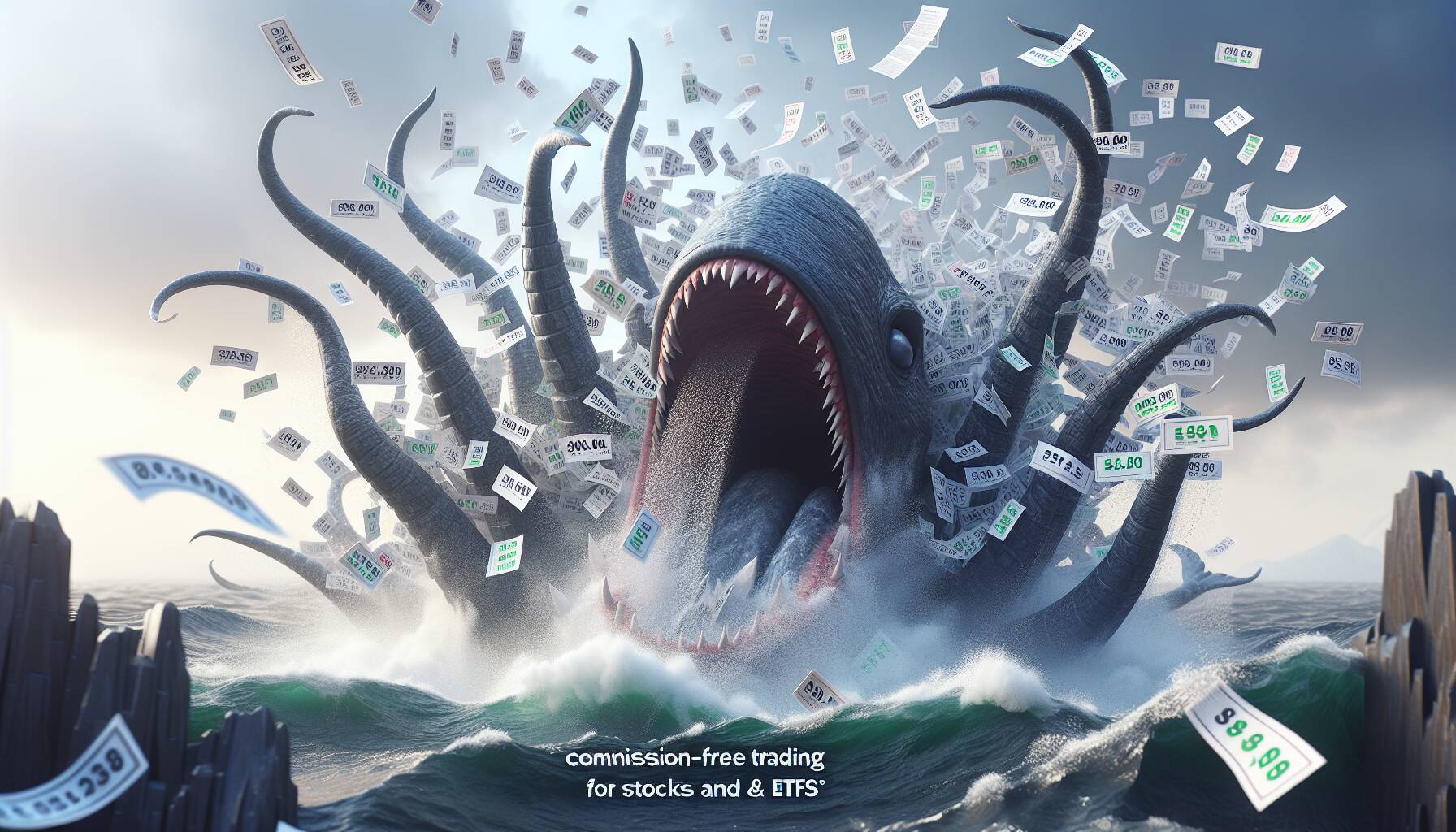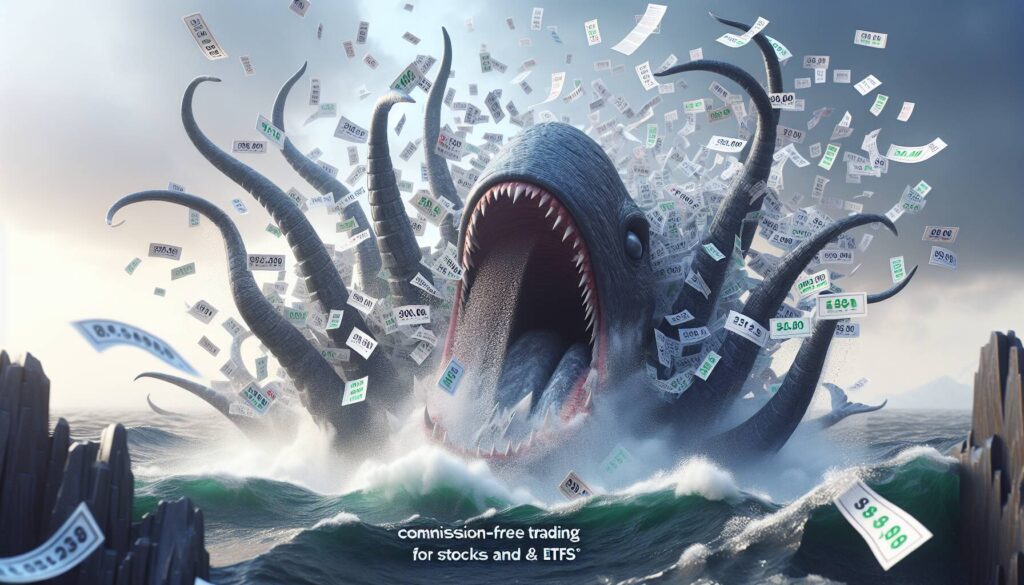In a significant development within the cryptocurrency landscape, Kraken, one of the leading crypto exchanges, has recently launched commission-free trading for U.S.-listed stocks and exchange-traded funds (ETFs). This strategic move is poised to merge traditional financial markets with the burgeoning world of digital currencies, as clients can now manage both asset classes within a single platform. The expanded offerings enable Kraken to compete more directly with popular trading platforms like Robinhood, which have long dominated the commission-free trading space.
Starting with ten U.S. jurisdictions—including states like New Jersey, Connecticut, and Alabama—Kraken plans to gradually roll out its stock trading services nationwide, with aspirations to reach international markets such as the U.K., Europe, and Australia. The incorporation of equities marks a natural progression for the exchange, as highlighted by Kraken’s co-CEO Arjun Sethi, who emphasized the growing demand for unified trading experiences. “Crypto isn’t just evolving; it’s becoming the backbone for trading across asset classes,” Sethi stated, suggesting that the line between traditional investing and cryptocurrency is increasingly blurring.
“As demand for 24/7 global access grows, clients want a seamless, all-in-one trading experience,” Sethi added.
This new offering is facilitated through Kraken Securities, a FINRA-regulated entity dedicated to equity trading, positioning the exchange as one of the few crypto-native platforms to provide a diverse trading ecosystem that encompasses both digital and traditional assets. As a wave of U.S. crypto companies eye public listings, Kraken’s expansion into equities could redefine the competitive landscape, making it a notable player alongside established names like Coinbase and Bitdeer.
As the cryptocurrency market matures, initiatives like these are essential in attracting new users and meeting the evolving needs of investors looking for versatility in their trading options. Kraken’s foray into commission-free stock trading reflects broader trends in the financial industry, underscoring the urgency for platforms to innovate and diversify their offerings in the face of a rapidly changing market.

Kraken Expands Trading Options to Stocks and ETFs
Kraken, a leading crypto exchange, has announced the launch of commission-free trading for U.S.-listed stocks and ETFs. This strategic move is set to impact various aspects of investment and trading for its users. Here are the key points:
- Commission-Free Trading:
Users can now trade stocks and ETFs without incurring commission fees, potentially reducing the cost of investment.
- Seamless Access:
Your investment portfolio can now include both cryptocurrencies and traditional assets like stocks, enhancing convenience.
- Expanded Jurisdictions:
The rollout begins in states such as New Jersey, Connecticut, and Alabama, with plans for nationwide and international expansion.
- Competitive Positioning:
By offering both crypto and traditional asset trading, Kraken aims to compete directly with popular platforms like Robinhood.
- Future of Tokenization:
This move paves the way for the potential tokenization of various assets, expanding investment opportunities.
- 24/7 Global Access:
The shift reflects growing demand for continuous access to financial markets, aligning with the evolving landscape of trading.
- FINRA-Regulated Entity:
Trading offered via Kraken Securities, a regulated entity, ensures compliance and reliability for users.
“As demand for 24/7 global access grows, clients want a seamless, all-in-one trading experience.” – Arjun Sethi, Co-CEO of Kraken
This expansion not only streamlines the trading experience for existing clients but also attracts new users seeking a comprehensive platform for all financial trading needs.
Kraken’s Bold Move: Expanding into Commission-Free Trading
In a significant shift within the financial trading landscape, Kraken has introduced commission-free trading for U.S.-listed stocks and exchange-traded funds (ETFs), allowing cryptocurrency enthusiasts to engage with traditional financial markets directly from their preferred platform. This strategic expansion positions Kraken as a formidable contender against established players such as Robinhood and Public, which have already carved a niche in the realm of multi-asset investing.
One of Kraken’s competitive advantages lies in its ability to combine trading across various asset classes, including cryptocurrencies, equities, commodities, and currencies, all within a single account. This all-in-one experience caters to a growing demand for seamless trading solutions from users who value efficiency and simplicity. Moreover, by launching its stock trading service through a FINRA-regulated entity, Kraken enhances its credibility and regulatory standing in the traditional financial space, which is critical for gaining the trust of investors.
However, Kraken’s entry into the commission-free trading space is not without its challenges. While it offers a distinct advantage by being a crypto-native platform, it also faces the inherent difficulties of competing against established brands that have already gained significant market share. Both Robinhood and Public boast user-friendly interfaces and established reputations, making it difficult for newcomers like Kraken to attract and retain customers without delivering an experience that is markedly superior.
This development could be a boon for digital currency investors looking for an integrated investment experience. It simplifies the investment process and offers more variety in trading options from the same platform. Conversely, traditional investors who are accustomed to established stock trading platforms may find it challenging to adapt to Kraken’s base in cryptocurrency, posing a potential barrier for a broader customer base. Additionally, the volatility associated with cryptocurrencies could deter traditional investors who are wary of the risks involved.
Kraken’s vision of tokenizing assets and its aspirations for market expansion into international territories brighten its prospects but also raise questions about the potential regulatory hurdles it may face abroad. As the platform ventures into new markets like the U.K., Europe, and Australia, the regulatory complexity could either hinder or accelerate its growth depending on the compliant strategies undertaken.
Overall, Kraken’s foray into commission-free stock trading reflects a shift in the financial industry that could either enhance its competitive edge or expose it to significant market vulnerabilities, depending on how effectively it navigates the traditional finance landscape alongside its crypto offerings.
















